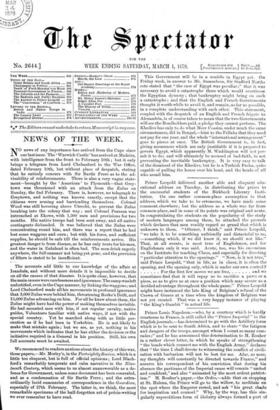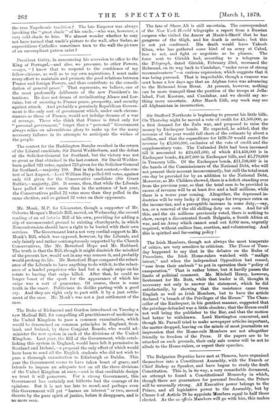Prince Louis Napoleon,—who, by a courtesy which is hardly courteous
to France, is still called the "Prince Imperial" in the English journals,—has determined to go with the Artillery force which is to be sent to South Africa, and to share "the fatigues and dangers of the troops, amongst whom I count, so many com- rades ;" and he has announced this deteiMination to M. Rouher in a rather clever letter, in which he speaks Of strengthening "the bonds which connect me with the English Army," declares that "the time I shall devote to witnessing the conflict of civili- sation with barbarism will not be lost for me. Afar, as near, my thoughts will constantly be directed towards France," and assures his correspondent of his conviction that during his absence the partisans of the Imperial cause will remain "united and confident," and also "animated by the most ardent patriot- ism." M. Rouher's paper,—the Ordre,—adds that on stopping at St. Helena, the Prince will go to the willow, to meditate on, the spot where the Emperor rested, and ask "his great shade for inspiration and counsel." Why, by the way, has this sin- gularly superstitious form of idolatry always formed a part of
the true Napoleonic tradition ? The late Emperor was always invoking the "great shade" of his uncle,—who was, however, a very cold shade to him. We almost wonder whether he may not have turned that uncle's picture to the wall, after Sedan, as superstitious Catholics sometimes turn to the wall the picture of an uncompliant patron saint ?



































